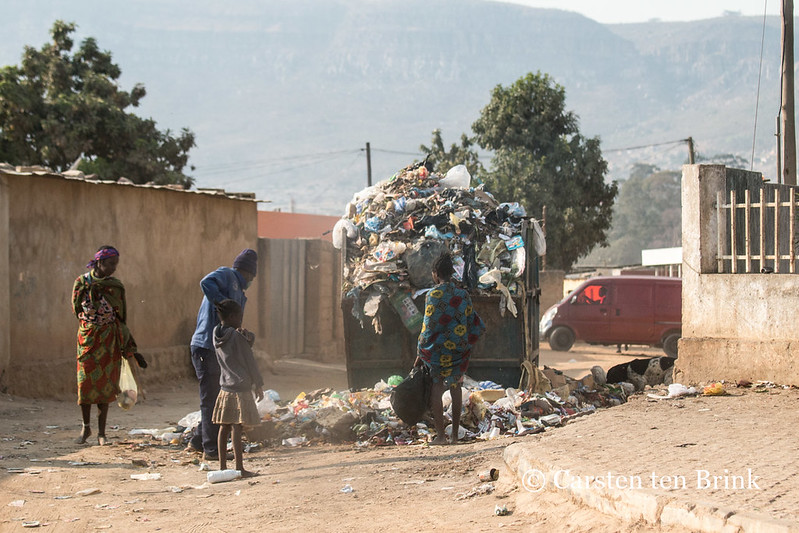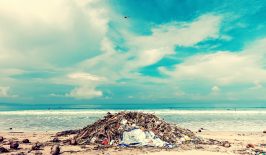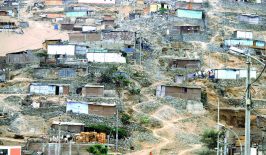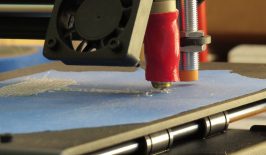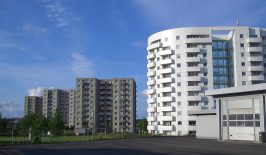Currently, around one billion people worldwide live in slum conditions, with the largest such communities being located in regions of Africa and Asia. Often these communities consist of cramped informal settlements with only basic access to amenities, such as clean water, health services and garbage collection and recycling.
Now, with the demand for housing in areas of Africa rapidly increasing, a Norwegian startup wants to build high quality housing quickly, and clean up the environment while they do it. Othalo, which was officially founded in 2019, is currently exploring methods of recycling plastic waste to construct clean, affordable and dignified housing across the African continent.
Currently, the startup is still within its research and development phase, and founder Frank Cato Lahti has been developing technology in association with research orgaisation Sintef and the University of Tromsø since 2014. Central to his approach is using plastic waste in the construction of high quality housing units, thereby providing accomodation, employment and helping to reduce Africa’s plastic waste pandemic.
According to Othalo, their design – developed in conjunction with architectural “wunderkind” Julien De Smedt – involves a range of pre-fabricated construction elements, connected together via open spaces such as terraces and loggias. While they haven’t revealed details about the process of turning the plastic into suitable building materials, Othalo claim they use waste found in the local construction area. Each house will require around 8 tons of plastic waste for a 60 metre-square building, and although it sounds like a significant amount, there is no shortage of building materials in the regions they hope to work.
Vast rubbish dumps are a common sight near many slum communities, much of it consisting of PET plastic waste. In many cases, the plastic was dumped locally, but many African nations have also imported plastic waste from abroad – to the tune of 230 metric tons between 1990 and 2017. Othalo suggests that globally there is enough plastic waste to build over one billion homes.
The startup is also not limiting itself to housing, its designs can also be applied to refugee shelters, temporary buildings or climate-controlled storage space. Initially, Othalo aims to concentrate on sub-Saharan Africa, where rapid urbanisation has increased the demand for housing. Currently, there is a shortfall of 160 million low-cost housing units, with the number expected to rise to 360 million by 2050.
An Increasingly Global Problem
Access to affordable, safe housing has long been a perennial problem in many African nations, including the most affluent. In South Africa, for example, there is currently estimated to be a shortage of 2.1 million homes for around 12 million people. Currently, much of those waiting for housing are left residing in cramped apartheid-era townships on the periphery of larger cities. Although many have now grown into sprawling communities in their own right, many still lack basic sanitation or civic amenities. Although the ANC started a massive programme of construction following their election in 1994, the number of new housing being built steadily declined from 1999. It is a story typical of elsewhere in Africa, where the construction sector is often marred by inefficiency, high costs, unsustainable practices and corruption.
However, the the issue also goes beyond Africa. The housing crisis is indeed global, with European, American and Asian states having to rapidly adjust to increased urban migration and expansion.
Othalo’s approach has already gained attention from some major players. The United Nations Human Settlements Program (HABITAT) partnered with Othalo in October 2020 and is assisting in starting pilot programmes in Nairobi, Dakar and Yaoundé. Currently, the modular building pieces are being built in a factory in Estonia, but Othalo hopes to start a similar manufacturing plant in Kenya if the trial proves successful.
For UN HABITAT, sustainable, affordable and comfortable housing provides an essential base for promoting the UN’s other Sustainable Development Goals (SDGs). The vast majority of the goals, such as reducing poverty, improving education, equality, sanitation and infrastructure, can benefit from the foundational support clean, safe and quality housing can provide.
